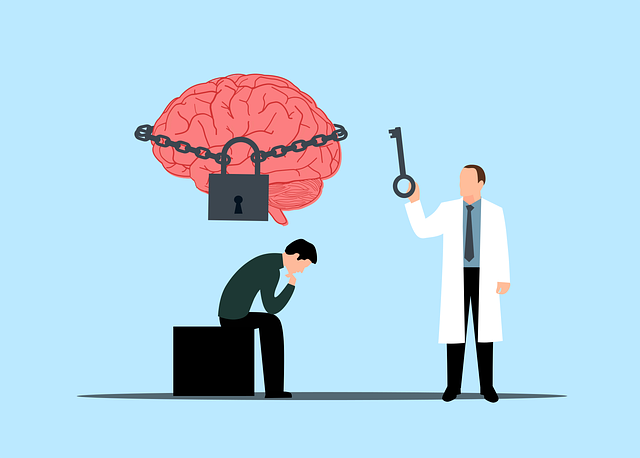Career Counseling vs Self-Assessment: Which Is Best in 2024?
Vardan Dubey – October 07 2024

After graduation, Shreya was overwhelmed by career choices. She first turned to self-assessment tests, which highlighted her strengths in problem-solving and creativity. Though helpful, the results felt incomplete. Seeking deeper insight,
she approached a career counselor, who not only validated her skills but also provided guidance tailored to current industry trends. Wondering whether career counseling or self-assessment is best for you in 2024? Discover how self-assessments can empower self-awareness and how career counselors offer expert, personalized advice. Dive into our blog to find your best path forward!
Table of Content
1. What is Career Counseling? Definition, Overview, and Types
2. What is Self-Assessment? Definition, Overview, and Popular Tools
3. Comparative Analysis: Career Counseling vs. Self-Assessment
4. Case Studies: Success Stories from Both Approaches
5. When to Choose Career Counseling
6. When to Rely on Self-Assessment
7. Combining Both Approaches: A Synergistic Strategy
8. Conclusion
What is Career Counseling? Definition, Overview, and Types
Definition and Overview
Career counseling is a process that helps individuals understand their personality, interests, and skills, which are crucial in choosing the right career path. This professional guidance can be highly beneficial in determining whether a particular career is a good fit for you.
Types of Career Counseling
Individual Counseling – Personalized one-on-one sessions that focus on your specific career goals, challenges, and aspirations. These sessions provide tailored advice and support to help you navigate your career path.
Group Counseling – Workshops or group sessions where individuals come together to share experiences, insights, and challenges. Participants benefit from group discussions and collective guidance, fostering a supportive environment.
Career Assessments – Utilization of various tools and tests designed to evaluate your skills, interests, and personality traits. These assessments provide valuable insights that can help identify suitable career options for you.
Career Transition Counseling– Specialized guidance for individuals looking to change careers or industries. This service helps you assess your transferable skills, explore new opportunities, and develop a plan for a successful transition.
Job Search Assistance – Comprehensive support that includes resume writing, interview preparation, and effective job search strategies. This service aims to enhance your employability and confidence in securing a job.
What is Self-Assessment? Definition, Overview, and Popular Tools
Definition and Overview
Self-assessment is a process where individuals reflect on their own skills, interests, values, and personality traits. It helps people understand themselves better, which can lead to better career choices.
Some popular self-assessment tools
Interest Inventories – Questionnaires that help identify your interests and match them with potential careers, like the Holland Code assessment.
Personality Tests – Tests like the Myers-Briggs Type Indicator (MBTI) that reveal your personality traits and how they may affect your work style.
Skills Assessments – Tools that evaluate your skills to show what you are good at and where you might need improvement.
Values Assessments – Assessments that help you understand your core values and how they relate to your career choices.
Reflective Journals – Keeping a journal to write about your experiences and thoughts can help you explore your career goals.
Comparative Analysis: Career Counseling vs. Self-Assessment
Career counseling and self-assessment are both tools to help you figure out what career path might be right for you. Let’s break down the differences:

1. Objective Insights
Career Counseling – Professional counselors give expert advice based on their experience and knowledge of job markets. This helps people make better choices.
Self-Assessment – This method can help individuals understand themselves, but they might misunderstand their results without guidance.
2. Personalized Guidance
Career Counseling – Counselors create personalized plans based on each person’s needs and strengths, helping them find the right career path.
Self-Assessment – It can show interests but often gives general suggestions that may not lead to specific careers.
3. Access to Resources
Career Counseling – Counselors can connect individuals to job openings, internships, and networking opportunities, making the job search easier.
Self-Assessment – While it helps identify interests, it doesn’t directly provide access to job resources.
4. Support and Accountability
Career Counseling – Counselors offer ongoing support and motivation, helping individuals stay focused on their goals.
Self-Assessment – This encourages personal reflection, but it’s easier to lose motivation without a counselor’s help.
5. Problem Solving
Career Counseling – Counselors help people deal with emotional and personal challenges that can affect career choices, making transitions smoother.
Self-Assessment – It’s helpful for self-discovery but may not address personal issues effectively without professional support.
Summary
Both career counseling and self-assessment are important for making career decisions. However, career counseling is usually more effective because it offers personalized advice, expert insights, and ongoing support. When combined with self-assessment, individuals can gain a clearer understanding of their career options and make better choices.
Case Studies: Success Stories from Both Approaches
Career Counseling Success Story
Name – Priya, a Recent Graduate
Background – Priya graduated with a degree in Psychology but felt lost in the sea of career options. She was eager to find a meaningful path but needed some expert guidance.
The Journey
- After a friend’s recommendation, Priya connected with a career counselor who specialized in helping young graduates.
- They kicked off with a fun, interactive assessment to uncover her interests, strengths, and values.
- The counselor opened Priya’s eyes to various roles in mental health, providing resources and connections for internships and workshops.
The Result – With her counselor’s support, Priya landed an internship at a vibrant mental health clinic, where she discovered her passion for clinical psychology. Inspired, she applied for a master’s program and snagged a scholarship! Today, Priya is on her way to becoming a licensed psychologist, making a difference in people’s lives.
Self-Assessment Success Story
Name – Raj, the Dreamer Turned Entrepreneur
- Raj took a series of self-assessment tests to identify his strengths, interests, and values.
- The assessments revealed his entrepreneurial spirit and interest in sustainable products.
- With this insight, he researched market trends and developed a business plan for a sustainable fashion line.
The Result – Raj launched his business, which focuses on eco-friendly clothing. He used his self-assessment results to create a brand that aligns with his values. Today, his startup is gaining traction, and he is proud to be living his dream as a successful entrepreneur.
When to Choose Career Counseling

Career counseling is helpful when you feel lost or confused about your career path, especially during transitions like graduating or changing jobs. It offers guidance on job searching and overcoming challenges such as interview anxiety.
Counseling can also keep you motivated and help you explore new options, understand your strengths, and build confidence. Moreover, it provides personalized support tailored to your unique circumstances, ensuring that you make informed decisions that align with your aspirations. Overall, it’s a valuable resource for achieving your career goals and finding fulfillment in your professional life.
When to Rely on Self-Assessment

Self-assessment is ideal for those who prefer exploring career options independently. It helps you reflect on your strengths, interests, and values, especially if you’re unsure about committing to one specific career path.
This approach offers flexibility, is budget-friendly, and provides valuable insights without the pressure of immediate decisions. It’s most effective for self-motivated individuals willing to invest time in self-reflection. However, self-assessment may lack the structured guidance, industry insights, and personalized support that career counseling provides, which can be crucial for making well-informed career choices.
Combining Both Approaches: A Synergistic Strategy
Combining self-assessment and career counseling is a smart approach to career planning. Self-assessment helps you understand your strengths, interests, and what careers might suit you. Career counseling adds expert advice, helping you make sense of your self-assessment results and giving you guidance based on current job opportunities.
This combination makes sure your career choices are both personally fulfilling and practical. By using both methods, you can confidently choose a career that fits your interests and future goals.
Conclusion
In conclusion, finding the right career path is a deeply personal journey, and both self-assessment and career counseling play important roles in this process. Self-assessment helps you explore your interests and strengths on your own, giving you valuable insight into what might suit you best. On the other hand, career counseling offers expert guidance, real-world insights, and personalized support to help you navigate challenges and make informed decisions. Combining both approaches creates a powerful, well-rounded strategy, ensuring you make career choices that are both meaningful and aligned with your long-term goals. Whether you’re just starting out or making a career change, this balanced approach can guide you toward a fulfilling and successful career.
If you have any queries, feel free to join our career counseling session and download our FREE e-book, “How to Choose the Right Career.

